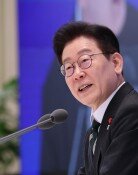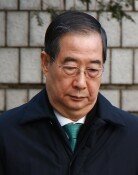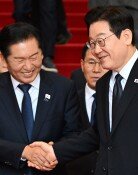Road Traffic Tax to Be Extended by 2019
Road Traffic Tax to Be Extended by 2019
Posted January. 21, 2003 22:32,
The Ministry of Construction and Transportation (MOCT) has decided to extend the road traffic tax on gasoline and diesel by 2019. At first, the tax was expected to be in place by the end of this year before being changed to the special excise tax, according to the policy to reduce special purpose tax.
The ministry has reported the plan to the Construction and Transportation Committee of the National Assembly held on Jan. 21.
If the road traffic tax is changed to the special excise tax, it is hard for us to stably secure the budget needed for Social Overhead Capital (SOC), said the ministry. It also made it clear that it will push for a plan that will extend the road traffic tax by 2019 when the national basic traffic network plan ends.
Moreover, the ministry argued that if the road traffic tax is changed to the special exercise tax, the special exercise tax rate on oil exceeds 160%. Then it may cause a serious tax resistance, resulting in a decreased tax rate and reduced revenue.
Heo Yong-seok, director of Tax Policy Division of the Ministry of Finance and Economy, said, I havent received the formal request from the Ministry of Construction and Transportation. If needed, I will review the plan to maintain the special excise tax.
The Ministry of Finance and Economy, however, stressed in its annual operational report at the beginning of the year, that it would implement the road traffic tax by the end of this year, as scheduled, before changing it to the special excise tax.
Meanwhile, Minister of Construction and Transportation Yim In-tack said in the report, When it comes to the Mt. Sa-pae tunnel in the beltway outside Seoul, if we construct a bypass at the request of the Buddhists, that will need additional huge expenses. If we cannot find an alternative route by the end of March, we will persuade them and stick to the existing plan.
According to the MOCT, the bypass will destroy the environment more than 1.6 times that of the current plan made by the government and the construction cost was projected to increase by more than 700 billion won.
The result, indirectly reported by the Korean Development Institute (KDI) on the Kyoung-in canal, reveals that the canal is economically competitive in 8 areas. As soon as the plan to push for the business is decided at the end of February, we will launch the program, he added.
Jae-Seong Hwang jsonhng@donga.com






![[속보]한덕수 1심 징역 23년 선고…“내란 가담자 중벌 불가피”](https://dimg.donga.com/c/138/175/90/1/wps/NEWS/IMAGE/2026/01/21/133201789.1.jpg)
